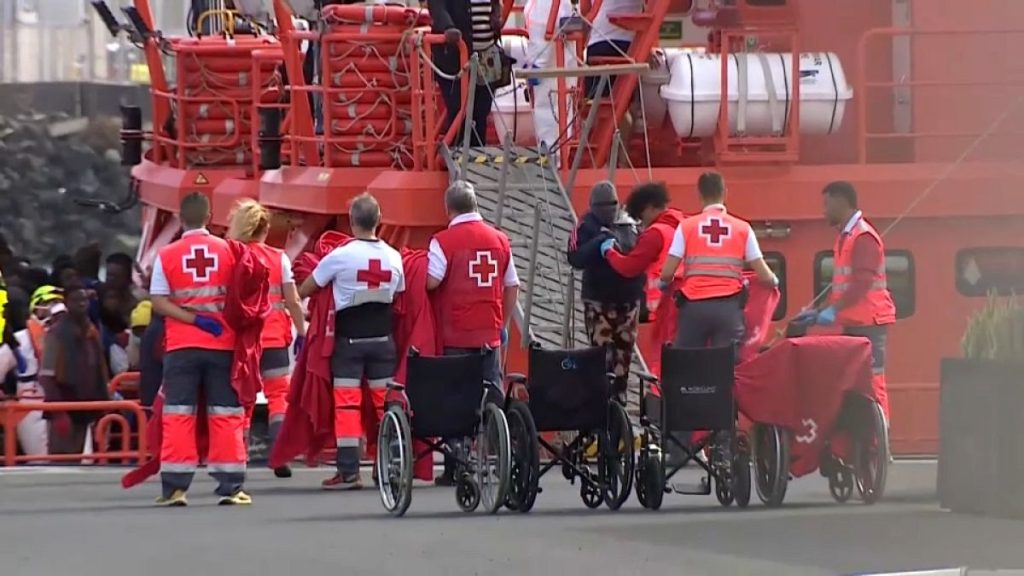In 2025, the Canary Islands experienced a rise in irregular migration, with approximately 183 migrants from sub-Saharan Africa arriving on three different vessels. Among them were 24 women and at least seven minors. Spanish authorities intercepted two boats carrying around 110 migrants on their way to Lanzarote, while another group arrived on a small canoe at the port of La Restinga on El Hierro. The migrants were provided with clothes, blankets, and food by Spain’s Maritime Safety and Rescue Society and the Red Cross. This influx of migrants adds to the growing concerns about irregular migration to the Canary Islands, which has become a popular stepping stone to continental Europe.
The Spanish interior ministry reported that in the previous year, Spain received a total of 63,970 irregular migrants, with the majority arriving in the Canary Islands. This marked an increase from the 56,852 migrants who arrived in 2023. The Canary Islands have become a key entry point for migrants seeking to reach Europe, with many embarking on perilous journeys by sea. Tragically, a report released by a Spanish migration rights group in December revealed that over 10,000 migrants died while attempting to reach Spain by boat in 2024. On average, this meant that 30 migrants lost their lives each day, highlighting the dangers faced by those seeking a better future.
Caminando Fronteras, the migration rights group, stated that most of the 10,457 deaths recorded in 2024 occurred along the Atlantic route, which leads to the Canary Islands. This route is considered one of the most dangerous in the world due to treacherous conditions at sea. The organization compiled its data from families of migrants and official rescue statistics, highlighting the devastating impact of irregular migration on vulnerable individuals, including children and women. The sharp rise in overall deaths by 58% compared to 2023 underscores the urgency of addressing the root causes of irregular migration and providing safer alternatives for those seeking refuge and opportunities.
The influx of migrants to the Canary Islands has put a strain on local resources, including humanitarian aid and support services. The Spanish government and aid organizations have been working to address the needs of migrants, providing assistance such as clothing, blankets, and food to those who arrive on the islands. However, the increasing numbers of arrivals pose challenges in terms of accommodation, processing asylum claims, and ensuring the safety and well-being of migrants. Authorities have called for international cooperation and solidarity in addressing the issue of irregular migration and preventing further loss of life at sea.
Efforts to address irregular migration to the Canary Islands require a multifaceted approach, including enhancing border surveillance, improving search and rescue operations, and addressing root causes such as poverty, conflict, and instability in migrants’ countries of origin. Additionally, there is a need for cooperation among European countries to ensure a coordinated response to the migration crisis and to share responsibilities for the reception and integration of refugees and asylum seekers. The Canary Islands serve as a key entry point to Europe for migrants in search of safety and opportunity, and it is crucial for all stakeholders to work together to provide support and protection to those in need.
As the Canary Islands continue to grapple with a surge in irregular migration, the plight of migrants risking their lives to reach Europe highlights the urgent need for a comprehensive and compassionate approach to migration policy. Addressing the root causes of irregular migration, ensuring the safety and well-being of migrants, and promoting international cooperation are essential steps in responding to this humanitarian crisis. By working together to provide support and protection to those in need, we can uphold human rights, prevent further loss of life at sea, and build a more inclusive and sustainable future for all.


